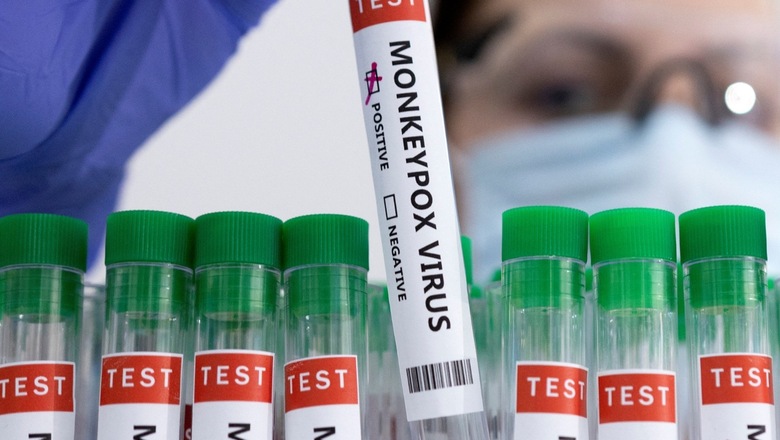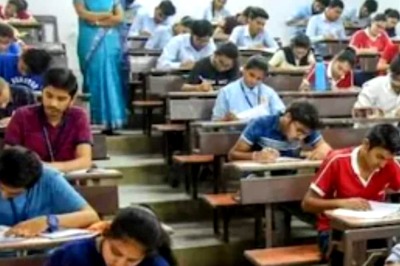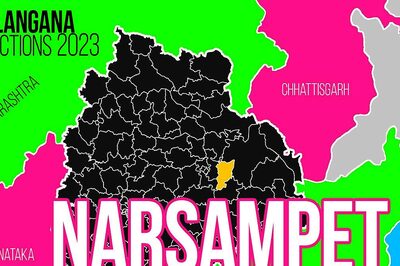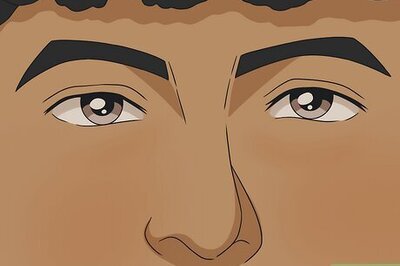
views
The world has been jostling with Covid-19 for the past two years. The memories of devastating Covid-19 waves are fresh and the loss of loved ones still haunts.
With every single day passing, we continue to learn more about the long-term or maybe, life-long effects of Covid-19 – physical and mental, both.
While everyone has been trying hard to maintain sanity despite the sporadic but regular spread of infection, the last thing we would wish for is another kind of outbreak or pandemic.
The newly emerging threat of another round of health emergency called monkeypox seems to be gaining momentum across the globe.
GLOBAL HEALTH EMERGENCY
On July 23, the World Health Organization declared monkeypox an “extraordinary" situation that qualifies as a global health emergency.
The slightly comforting news, so far, is that the clinical presentation of monkeypox resembles that of smallpox and it is known to be less contagious than smallpox and causes less severe illness, according to the WHO.
The top symptoms, known until now, include bumps, rashes, fever, and swollen lymph nodes.
Before April 2022, monkeypox virus infection in humans was seldom reported outside African regions, where it is endemic.
Till last week, over 20,000 cases were reported in 77 countries. More than 2,100 monkeypox cases have been recorded in 11 African countries and 75 people have died.
Three deaths have been reported outside Africa. One in Brazil and two in Spain.
In fact, globally, cases are spiking. For instance: On July 29, the U.S. reported 268 new monkeypox cases, more than double from last week, taking the total to 4,907.
In India, the official number stands at four, of which one patient has fully recovered while the condition of the other three remains satisfactory.
Meanwhile, doctors across India have started receiving calls and rush of patients with OPD confusing minor skin allergies or rashes with monkeypox infection – thanks to the awareness combined with the fear.
SOURCE UNKNOWN
As we discuss the disease, monkeypox has nothing to do with monkeys.
This viral infection was discovered in 1958 when two outbreaks of a pox-like disease occurred in colonies of monkeys kept for research, according to Centres for Disease Control and Prevention.
Despite being named ‘monkeypox’, the source of the disease remains unknown in today’s context.
WHO Director-General Tedros Adhanom Ghebreyesus had said during a June press briefing that the agency was working with experts to change the name.
WHAT STUDIES SAY
To set the context right, first, let’s understand the latest scientific findings and theories behind the rise of monkeypox across the globe.
According to the analysis published in the latest issue of the New England Journal of Medicine (NEJM), a reputable science journal, at least 98% of the persons with monkeypox infection were gay or bisexual men.
The paper on 528 monkeypox cases in 16 nations, published on July 21, indicates that a sexual relationship between men could be a possible link behind the spread.
“We reported 528 infections diagnosed between April 27 and June 24, 2022, at 43 sites in 16 countries. Overall, 98% of the persons with infection were gay or bisexual men, 75% were white, and 41% had human immunodeficiency virus infection; the median age was 38 years," the NEJM article said.
“Transmission was suspected to have occurred through sexual activity in 95% of the persons with infection."
The other study was published on July 28 in British Medical Journal. The study conducted in London confirms the ongoing community transmission of the monkeypox virus among gay, bisexual, and other men who have sex with men.
However, the initial studies may have some loose ends and need more data before a concrete conclusion.
For instance: Emerging evidence suggests that there are at least two separate monkeypox outbreaks underway, globally.
Sample this: An interview of scientist Vinod Scaria published in The Hindu clarified that the genome sequences of the first two imported cases of monkeypox detected in Kerala show that they belong to a small cluster — A.2 — that was very different from the one that was first detected in the UK on May 6 this year and has since spread to more than 75 countries.
The genomes from the major outbreak of monkeypox cases in Europe and the rest of the world belong to the B.1 lineage.
In the middle of much confusion, several other aspects of the disease remain to attain clarity – in short, the situation is similar to what we faced in Covid-19.
For instance: America’s CDC says monkeypox is not known to linger in the air and people with monkeypox generally report having close, sustained physical contact with other people who have monkeypox.
However, another study done in hospitals in the United Kingdom contradicts CDC’s suggestions. The UK study from the NHS hospitals shows that the virus does linger in the air and concludes “potential aerosolization".
With all these details in hand, how worried India should be?
IS INDIA READY TO TACKLE IT?
According to medical experts, the spread of the virus is not alarming, when seen in the Indian context. India reported the first case on July 14. However, what needs attention is the trend of Kerala reporting a majority of the cases – three out of four. The fourth patient traveled to Himachal Pradesh — the state with no reported case of infection so far.
Considering that Kerala has expertise in swiftly catching and responding to outbreaks, the chances of missing cases in other states could not be ignored. At this stage, controlling the spread of the virus holds utmost priority.
DO WE NEED VACCINES AGAINST MONKEYPOX?
‘Vaccines work’ is something the Covid-19 pandemic has demonstrated across the globe and probably, that’s the only magic word one could resort to in such trying times.
Showing enough promptness, India’s apex medical research institute, the Indian Council of Medical Research (ICMR), last week invited vaccine makers to collaborate on the development of a vaccine against the monkeypox virus.
ICMR has invited expressions of interest for collaboration to develop diagnostic kits and vaccine candidates for the monkeypox virus.
Until now, monkeypox has been a self-limiting disease with symptoms lasting up to a month and we may never need a vaccine.
As it resembles smallpox, health experts believe that the people who had earlier got smallpox or the smallpox vaccine may also have immunity against monkeypox.
CAN SAME VACCINE BE REPURPOSED?
Research shows waning of immunity from smallpox vaccination could be one of the reasons behind the comeback of the monkeypox virus. Globally, it is more than 40-50 years since mass vaccination drives were stopped.
Hence, the production of smallpox vaccines was stopped long ago. However, the debate continues if there is an urgent need to vaccinate the population against the latest outbreak.
So far, except for people with compromised immunity or those considered high-risk individuals, others may not require any assistance.
A vaccine expert said, “Thanks to Covid-19, all Indian or foreign vaccine makers have their technology and the broad understanding ready. What they need to do is just a tweak of virus and in no time, vaccines will get ready, if the need arises."
However, four experts I spoke to – a vaccine expert, two virologists, and a public health expert – advised the ‘wait and watch’ approach.
“Making vaccines is no big deal but who knows if tomorrow this virus fades away like it never existed? Who will buy those vaccines," asked an official from a top vaccine manufacturing firm that also sells vaccines against Covid-19.
Another expert, a scientist said that we have probably become too comfortable with the term “fast-tracked vaccines".
“Readying vaccines in a matter of just a few months was one of the rarest scenarios. Let’s not make it a practice. The research of at least a decade that vaccines used to undergo before going inside the human body is hugely important," the scientist said, adding that “Let’s first understand if we really need vaccines to tackle monkeypox."
TRACK AND TRACE
Meanwhile, what India must start doing is to up its surveillance in “tracking and tracing".
Executing the learnings from the Covid-19, it’s high time to prepare emergency plans while assuming the arrival of the worst.
According to the WHO, an antiviral agent known as tecovirimat, developed for smallpox has been approved by the European Medicines Agency.
However, the drug is not yet widely available. As India demonstrated its skills in manufacturing complicated, potential drugs against Covid-19 such as remdesivir, favipiravir, tocilizumab, and others, the research and development process of tecovirimat should also be immediately attempted.
Like Covid-19, wide testing could diagnose many more cases.
India needs to conduct more and more genome sequencing as cases continue to emerge. In fact, experts advise sequencing every single case.
Public communication should be wide and clear which does not end up creating panic, but at the same time, does convey the real-time scenario.
It’s time to show if India has matured enough in facing a health emergency or if winning over Covid-19 was just a fluke of luck!
Read all the Latest News and Breaking News here



















Comments
0 comment